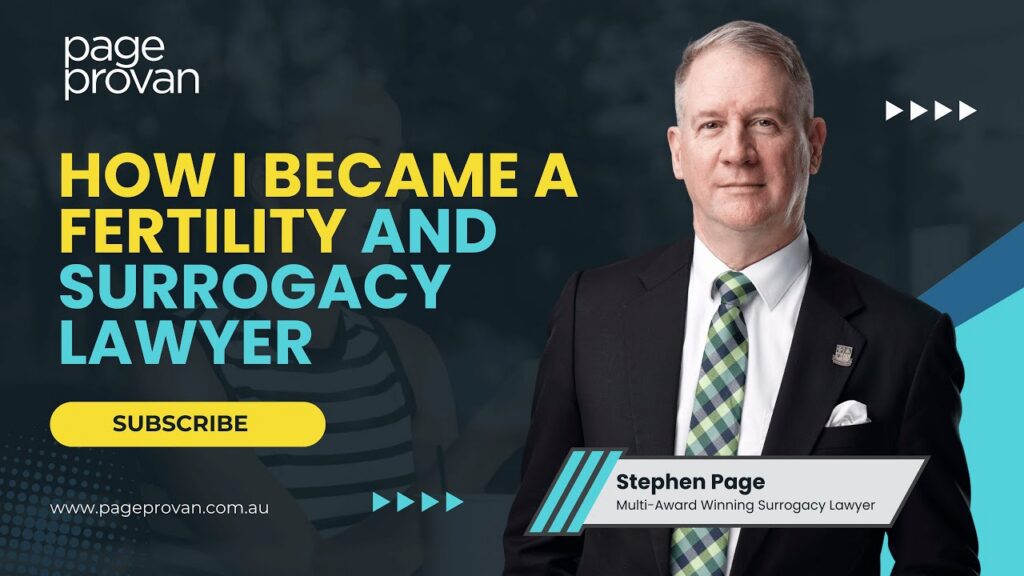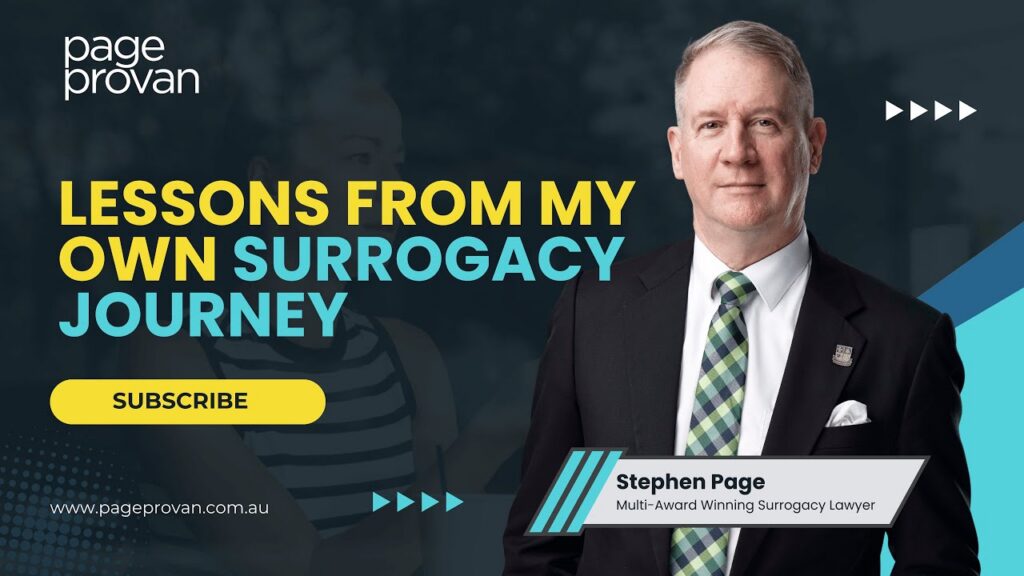How does the Hague Intercountry Adoption Convention work in Australia?
In this video, Page Provan Director and award-winning surrogacy lawyer Stephen Page, talks about the Hague Convention and how it applies in Australia.
Transcript
G’day, Stephen Page from Page Provan Family and Fertility Lawyers and in the next couple of videos, I’m talking about adoption. And so I get clients coming to see me, and I have 25, 30 years about adoption matters and adoption is a pretty particular area.
It’s really quite difficult, most family lawyers don’t know it, haven’t had anything to do with it, and it’s just a bit different. And this video is about how the Hague Convention applies in Australia.
So I’m already talking in jargon, I’m sorry about that, but you need to know a little bit in this area. Back in 1993, a bunch of countries signed up what’s called the Hague Inter-Country Adoption Convention and for signatory countries like Australia, it governs how adoptions occur internationally.
So if you have a child born overseas, or I should say a child is born overseas, and you live in Australia and you want to adopt the child, then there are some really confusing rules about how you’re recognised as a parent, and the rules are inconsistent, and sometimes, crazily so. So I’ll start off with the Family Law Act.
The Family Law Act says that if you’ve done an adoption anywhere in the world, and adoption is in accordance with the law of that place, so whether it’s any state or territory of Australia or anywhere else, then you are the parents.
It’s really quite simple, and the high court told us that back in 2019. But does that mean that your child can live in Australia? And the answer is probably not, or may not, because instead, what you’ve got to do is then take up the migration regulations.
The Family Law Act not only says who is a parent in a broad sense, but then says, well, we’ll take up the 1993 Hague Intercountry Adoption Conventions to make it part of the law of Australia, and adoption law, generally in Australia, is not covered by the Commonwealth, it’s covered by the States.
So we have this real mishmash of rules under the Migration Regulations, the Family Law Act, and State and Territory Adoption Acts. So in basic terms, if there is a child who is what is called habitually resident, in other words, they live there in a 1993 Hague adoption Intercountry Adoption country, and you live here, so you are habitually resident here, then what you would normally do is you would get a court order over there, and then by virtue of that court order, the child can live here.
You get a particular visa that’s set out in the migration regulations. The key to it, however, is that the adoption must be a final adoption. So you are the parents now, not the birth parents or anyone else for that matter, for all purposes, and that there has been an adoption compliance certificate issued by the other country, and this is where the mess really starts.
In a recent matter that we looked at for clients, we looked at a South Sea country, South pacific country and we were told by a colleague in the other country that, well, the authorities here could write to the authorities there.
So instantly, you’re talking about two lots of bureaucracy that you have to deal with as well as court, and it would take 2-3 months once the letter landed there or the email landed there before they would look at it and respond.
So the process can be slow, it can be very difficult. But in the right case, it can happen and there are certainly some adoptions that happen in Hague countries that are excluded. For example, adoptions that occur through surrogacy typically don’t have adoption compliance certificates issued, and there’s also an issue about whether the child who is the child born of the intended parents or for the intended parents is habitually resident there.
There’s some case authority that says, Well, no, and from New Zealand, that the child is really habitually resident of that of the intended parents. There’s also some cases from Europe along the same lines.
So if you get an adoption order made overseas and you don’t get your adoption compliance certificate, then it doesn’t comply with the Hague Convention. The other way of doing it is that the child is adopted here, so the child moves from there, is habitually resident there, and moves here, and gets an order made here.
Generally, I certainly wouldn’t recommend that because you got to get a visa to have the child come here in the first place. It is possible to get that visa here, if you get the approval of the State Adoption Authority, for example, the Queensland Department of Child Safety, or whatever its name is now.
If you then get that approval, bring the child here, get the court order here. So as you can see, the process of undertaking adoption overseas through the Hague Convention is a bit of a bureaucratic minefield, but it is doable, it is navigable, but it would be wise to undertake that process with expert legal advice at your side so that you don’t waste time and money going down dry gullies.
Because if you want to become a parent, you want to get there as quickly as you can with as little fuss and as cheaply as possible. So there we go, that’s the first video, and that’s about how the Hague Convention, the 1993 Hague Intercountry Adoption Convention, applies to adoptions.
Thank you.












